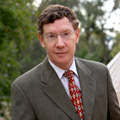Integrative and Functional Medicine continues to mature. Much continues to be written about the connection between the mind and body as the science matures with a focus on coordination of care. Over the years, much has happened to support further interest in providing ethical and reasonably priced complementary and alternative medicine. Interestingly as this subject has matured, even the name has changed to Integrative and Functional Medicine.
My friend and colleague, Dr. Julie Southmayd, is passionate with a mission to treat patients in a personalized way to achieve maximal health by identifying the root cause of the illness. She uses specialized testing to identify toxicities, hormone imbalances and nutritional deficiencies, and recognizes genetic susceptibilities.
Teams are being developed with certifications to legitimatize this area of expertise. The Institute of Functional Medicine offers training and certification. Fellowships, requiring additional years of training on top of internship and residency are offered at the University of Arizona, Harvard Medical School, University of Michigan, University of Kansas, Weil Cornell Medical School and about a dozen more prestigious institutions.
Teams that focus on the whole patient in counter distinction to an organ system—such as heart, lungs, brain, are becoming more common and accepted. In fact, potential patients are searching for a team approach where the physician leads a team including a nutritionist, a health care coach, an exercise physiologist, a pharmacist, and therapists as needed for physical and psychological needs. In the right setting, additional treatments and services could be included such as hormone balancing, acupuncture, massage therapy, stress management, and weight loss programs.
Functional medicine physicians are attuned to the links between the environment, lifestyle choices, patient motivation, genetic composition and traditional medicine. About 80% of all illness is not related to our genetic make-up. Many chronic diseases like diabetes, asthma, and some heart and lung diseases are either self-induced or exacerbated by what we do to ourselves.
Lifestyle choices are both part of the problem and part of the solution. Integrative and Functional Medicine focuses on making the connection between lifestyle and health. Thus, by replacing medication with just counseling, many patients can be directed to a better path. Once a person has enjoyed success, they are more likely to stay on a better course which, in turn, leads to a virtuous cycle of positive feedback.
A good example, which is supported by objective evidence, is getting into group exercise or having a group to walk with on a regular basis. This solves two problems: loneliness—the number one cause of death for those over 65; and a culture of not exercising, which is pervasive in our nation. The average American does not exercise the recommended three times a week for 45 minutes each time. Once a person is motivated to exercise, their weight goes down, spirits lift from endorphin release, blood pressure and sugar drop and heart and lung function improve.
This positive cycle is in marked counter-distinction to a vicious downward pathway which starts with a suboptimal habit, e.g. drinking excess carbonated sugar water—a.k.a. soda—and progresses to an added desire for sweeter foods, weight gain, decreased mobility, arthritis, immobility, loneliness, depression and even worse dietary habits.
The goal of modern health care, which NCH supports, is to keep our community healthy and people out of the hospital. We need to think of patients as people who don’t want to be sick. We will view a hospitalization in the future as a failure of the health care system. Office care will be acceptable with a team approach focused on and emphasizing prevention. This is where progress with Integrative and Functional Medicine will find its sweet spot.
We are on the road to wellness but we are still at the early milestones. With time we will progress and, I suspect, Integrative and Functional Medicine will be in the lead of this worthwhile journey.
